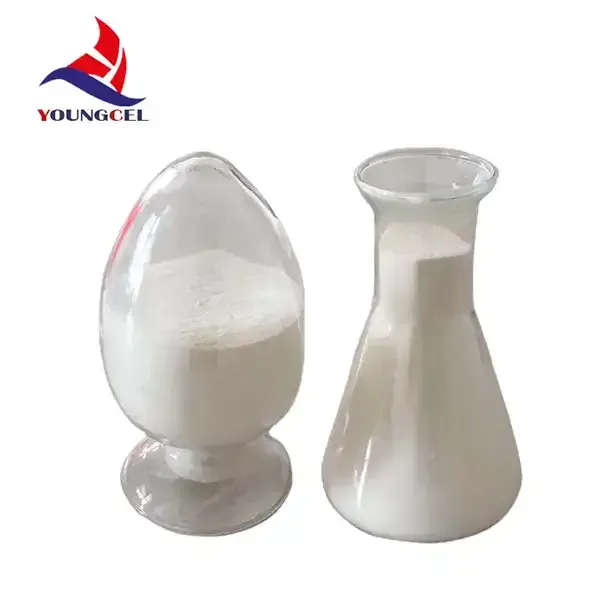The Role of Cellulose Suppliers in Today's Markets
Cellulose, a vital organic polymer found in the cell walls of plants, serves as an integral component across a myriad of industries. From paper production to food additives, textile manufacturing, and pharmaceuticals, cellulose's versatility cannot be overstated. With such diverse applications, the role of cellulose suppliers has become increasingly crucial in ensuring that businesses receive high-quality cellulose tailored to their specific needs.
Understanding Cellulose
Cellulose is the most abundant organic polymer on Earth, composed of linear chains of glucose molecules. It provides structural support to plant cells, making it a significant component in agriculture and forestry. Given its biodegradability and renewability, cellulose stands out as an environmentally friendly alternative to many synthetic materials.
There are several types of cellulose derived from various sources, including wood pulp, cotton, and even agricultural residues. Each type has unique properties, leading to different applications. For instance, microcrystalline cellulose is widely used in the pharmaceutical industry as an excipient due to its capacity to improve drug flow and compressibility. On the other hand, dissolving pulp is crucial for producing viscose fibers for textiles.
The Market for Cellulose Suppliers
With the rising demand for sustainable and eco-friendly materials, the cellulose market is poised for significant growth. The global trend toward sustainability has prompted industries to seek cellulose as a greener alternative to traditional materials, leading to an increase in the number of cellulose suppliers. These suppliers play a pivotal role in ensuring that manufacturers have access to the right quality and quantity of cellulose.
Cellulose suppliers often source their products through sustainable practices, identifying eco-friendly methods of production. Sourcing may involve partnerships with forestry operations that practice sustainable logging, ensuring that the ecological balance is maintained. This commitment to sustainability enhances the supplier's reputation and builds trust with customers concerned about environmental impacts.
cellulose supplier

The Quality Challenge
One of the primary challenges faced by cellulose suppliers is ensuring product quality. Different applications require varying levels of purity, viscosity, and fiber length. For instance, the food industry may demand food-grade cellulose that meets stringent health regulations, while industrial applications might prioritize cost-effectiveness and bulk availability.
To maintain quality, suppliers must invest in advanced processing technologies and quality control measures. This may involve using sophisticated techniques to refine cellulose, such as enzymatic treatments or chemical modifications that enhance its properties for specific applications. Consequently, the choice of a reliable cellulose supplier is critical for businesses aiming to maintain product integrity and safety.
The Future of Cellulose Supply
The future for cellulose suppliers looks bright, with innovations driving the industry forward. Research into new cellulose derivatives and applications continues to expand, creating opportunities for suppliers to diversify their product lines. For instance, nanocellulose, derived from cellulose at the nanoscale, has shown promise in numerous applications, from biodegradable plastics to advanced packaging materials and even electronics.
Additionally, the growing trend of bioplastics is an area where cellulose suppliers can make a significant impact. As businesses and consumers seek alternatives to petroleum-based plastics, cellulose-based bioplastics can offer a sustainable solution, opening new markets for suppliers willing to innovate and adapt.
Conclusion
In summary, cellulose suppliers are playing an increasingly important role in various industries as the demand for sustainable materials grows. By providing high-quality cellulose sourced through sustainable practices, these suppliers not only support their clients in achieving their production goals but also contribute to the larger objective of environmental stewardship. As the market evolves, the continued innovation and commitment to quality from cellulose suppliers will be essential in shaping a more sustainable future. Companies looking to leverage cellulose’s benefits must choose their suppliers wisely, focusing on those who not only understand the intricacies of cellulose production but also prioritize sustainability and quality in their offerings.
-
Rdp Powder: Key Considerations for Wholesalers in the Building Materials IndustryNewsJul.08,2025
-
Key Considerations for Wholesalers: Navigating the World of Hpmc - Based ProductsNewsJul.08,2025
-
Hpmc Detergent: Key Considerations for WholesalersNewsJul.08,2025
-
Key Considerations for Wholesalers: China Hpmc For Tile Adhesive, Coating Additives, Concrete Additives, and MoreNewsJul.08,2025
-
Crucial Considerations for Wholesalers: Navigating the World of Construction MaterialsNewsJul.08,2025
-
Key Considerations for Wholesalers Sourcing Additive For Cement, Additive For Concrete, Additive For Putty from Additive Manufacturer Shijiazhuang Gaocheng District Yongfeng Cellulose Co., Ltd.NewsJul.08,2025




